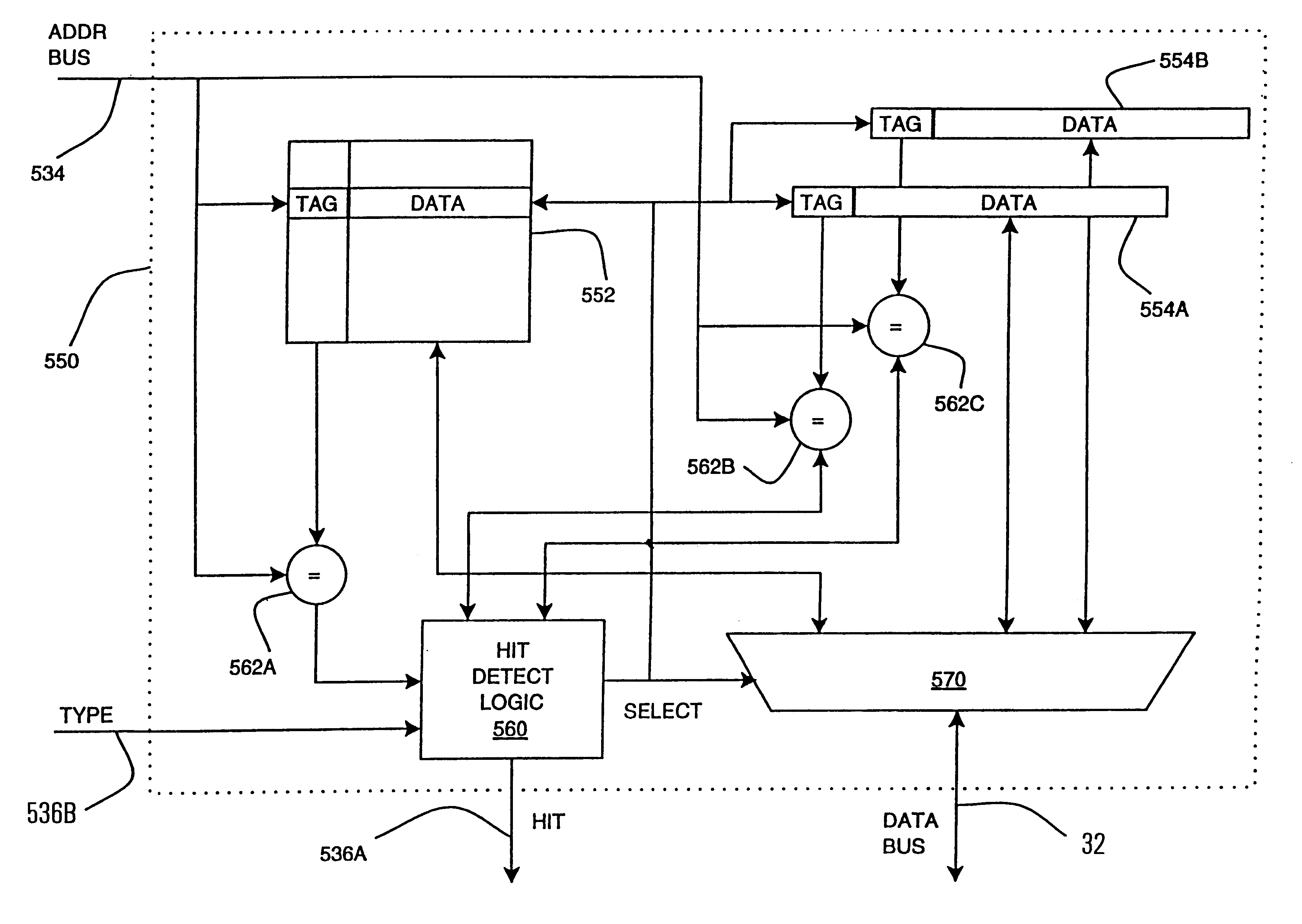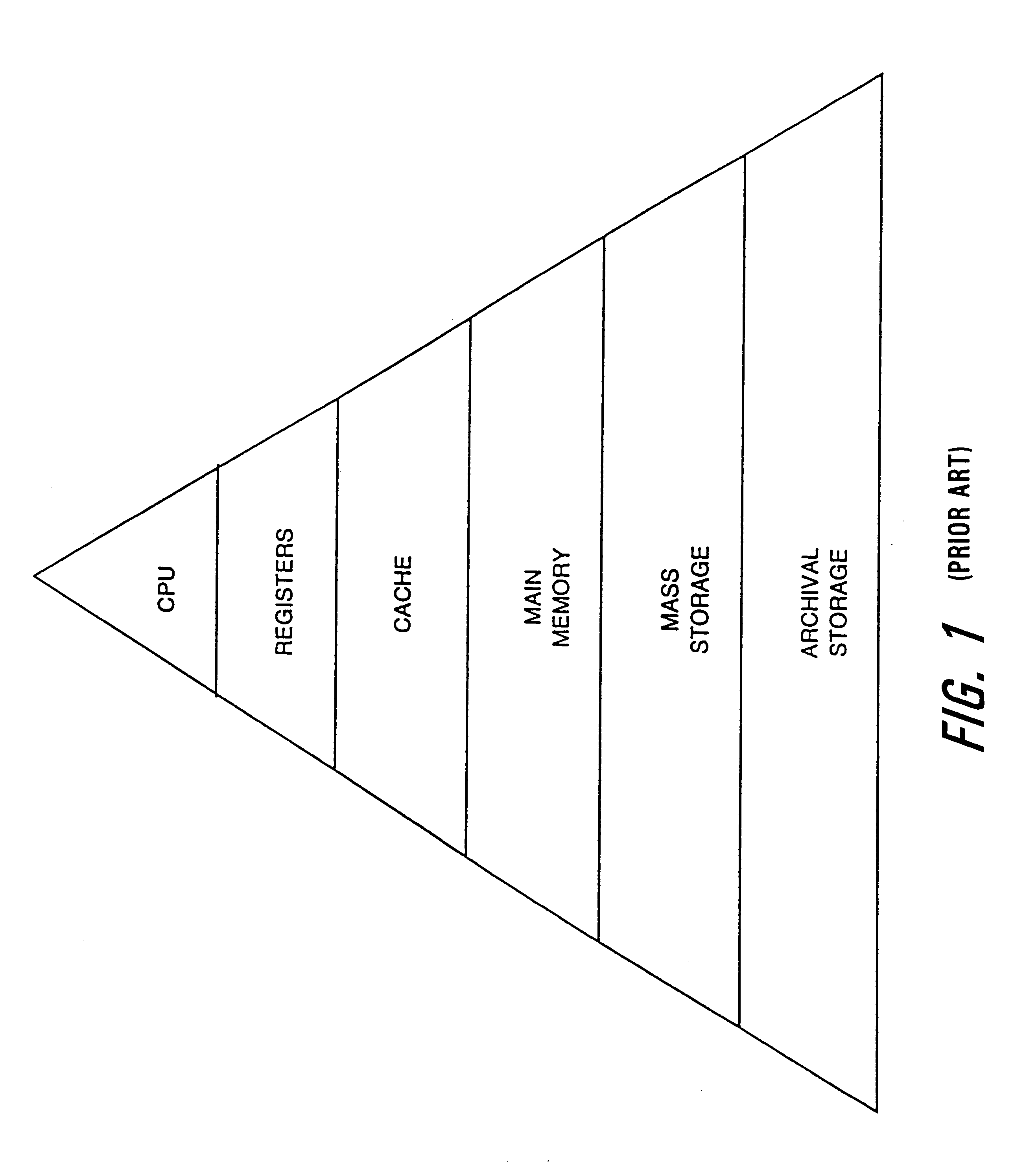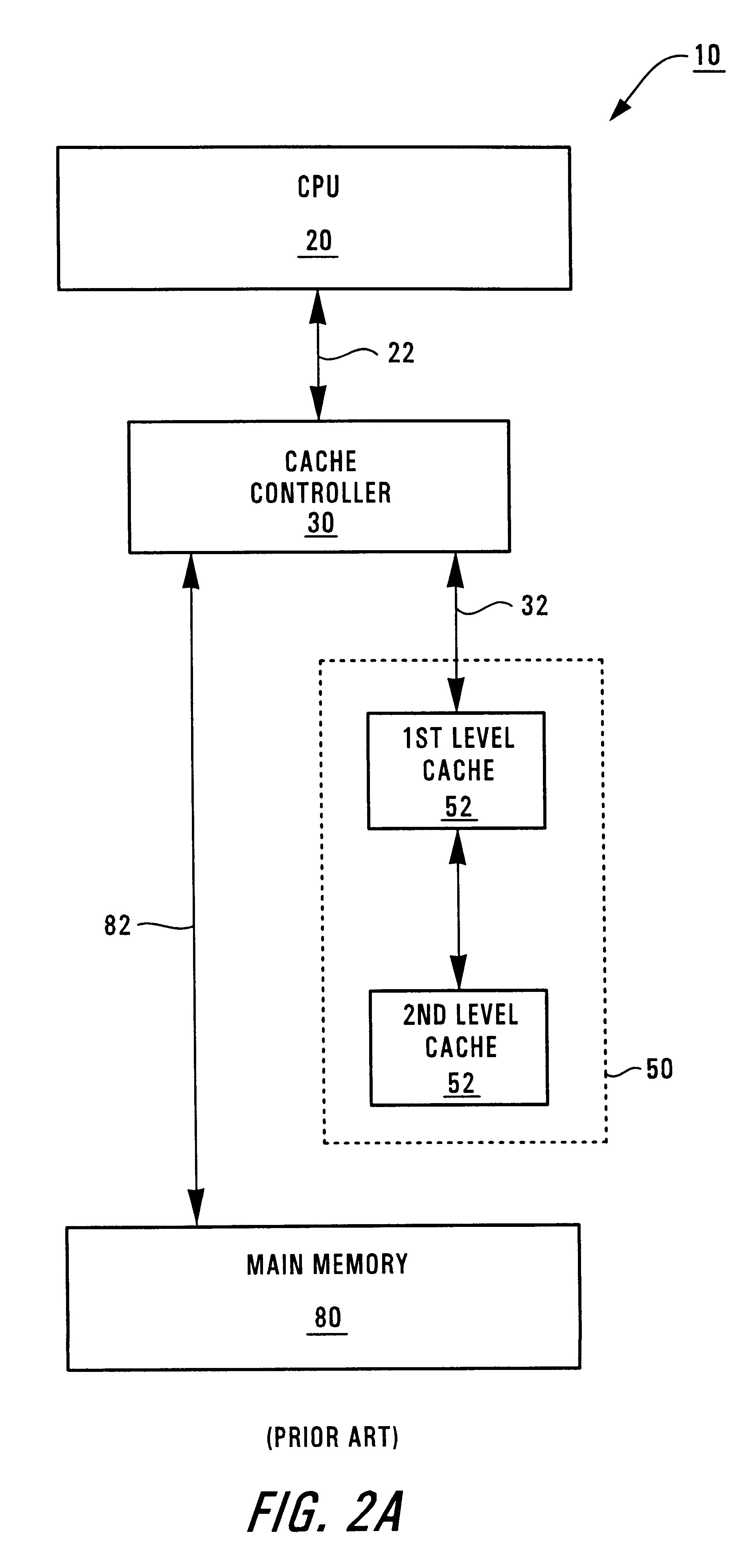Method and architecture for data coherency in set-associative caches including heterogeneous cache sets having different characteristics
a technology of cache sets and cache sets, applied in the field of cache sets, can solve the problems of slow access, large cache memory, and high cost per bit, and achieve the effect of improving data coherency, reducing the cost of access, and improving the speed of access
- Summary
- Abstract
- Description
- Claims
- Application Information
AI Technical Summary
Problems solved by technology
Method used
Image
Examples
Embodiment Construction
Indicated generally at 500 in FIG. 5 is a microprocessor architecture wherein CPU 20 is coupled to a cache controller 530 which controls accesses from CPU 20 to a heterogeneous cache 550 and main memory 80 in accordance with the present invention. Prior to describing the detailed structure of the microprocessor architecture 500, the key components of the architecture will be identified followed by a brief description of the operation of the system. Then a more detailed description of each of the components will be provided along with a more detailed description of the operation of the architecture. Similar reference numbers are used to identify similar components present in different drawings.
More detailed consideration will now be given to the structure of the architecture 500 of the present invention. CPU 20 is coupled to cache controller 530 via CPU data bus 22, CPU address bus 24 and CPU control bus 26. CPU 20 outputs an address value on address bus 24 along with a corresponding...
PUM
 Login to View More
Login to View More Abstract
Description
Claims
Application Information
 Login to View More
Login to View More - R&D
- Intellectual Property
- Life Sciences
- Materials
- Tech Scout
- Unparalleled Data Quality
- Higher Quality Content
- 60% Fewer Hallucinations
Browse by: Latest US Patents, China's latest patents, Technical Efficacy Thesaurus, Application Domain, Technology Topic, Popular Technical Reports.
© 2025 PatSnap. All rights reserved.Legal|Privacy policy|Modern Slavery Act Transparency Statement|Sitemap|About US| Contact US: help@patsnap.com



